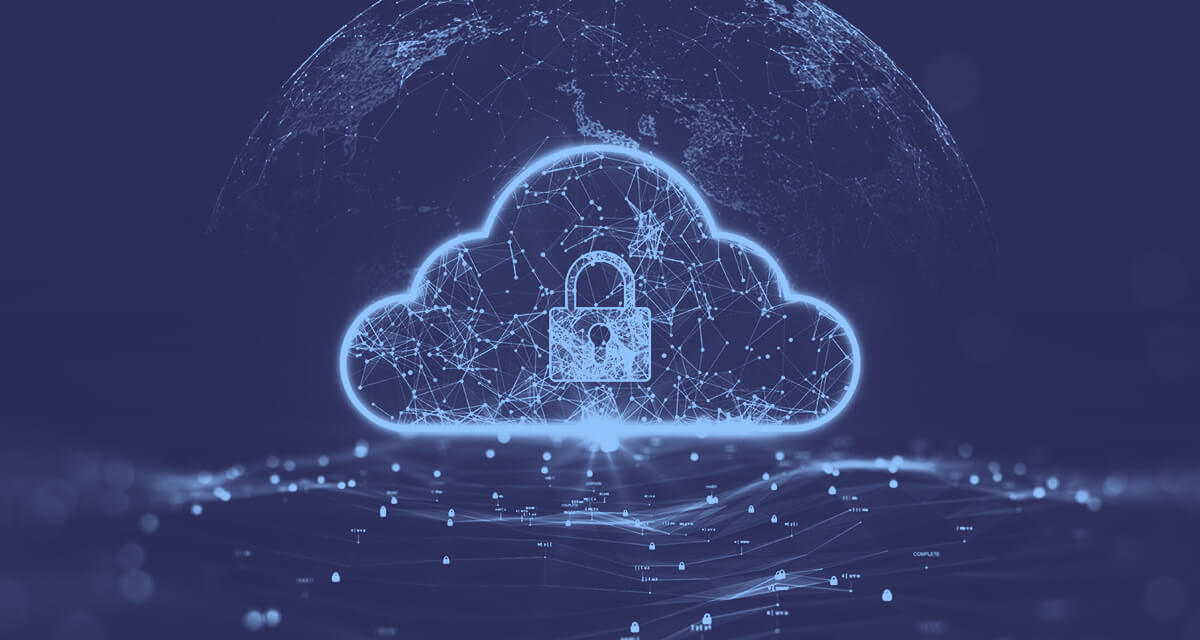

Protected Health Information or PHI is required and used by hospitals, insurance companies, and other healthcare organizations during treatment and service. The need for patient medical information protection increased as more healthcare professionals started adopting electronic health records and other technology.
Consequently, the federal government passed the Health Insurance Portability and Transparency Act, or HIPAA for short, in 1996. Given that these are sensitive patient data, it is important to ensure that security measures are followed to secure private and sensitive patient data. Entities that violate HIPAA safeguards risk severe consequences, including fines and the loss of federal funding.
The United States has mandated the usage and declaration of protected health information per government regulations. This set of rules is known as HIPAA compliance. The Health and Human Services (HHS) department regulates, and the OCR (Office for Civil Rights) enforces HIPAA compliance laws.
Healthcare organizations must have a HIPAA compliance culture to safeguard protected health information’s privacy, integrity, and security.
Any demographic data identifying a patron or patient of a HIPAA entity falls under Protected Health Information (PHI). It includes:
PHI that is transferred, saved, or obtained by electronic means and referred to as “ePHI” is subject to HIPAA regulatory criteria. The HIPAA Security Rule, an amendment to the HIPAA law, passed to consider advancements in health technology, governs ePHI (electronic protected health information).
Two sorts of organizations must follow HIPAA compliance.
Per HIPAA compliance rules, any company that electronically acquires, produces, or transfers PHI is a covered entity. Health care providers, clearinghouses, and insurance companies are examples of healthcare organizations that fall under covered entities.
HIPAA rules describe these as any company confronting PHI while working under a contract with any covered entity. Business associates can be of many types due to the variety of facilitators able to manage, transfer, and use PHI. HIPAA rules impact business associates like:
The HIPAA comprises several rules. Many HIPAA rules have been passed for over 20 years since HIPAA was established in 1996. Some of these are:
This rule establishes federal guidelines for patients’ PHI rights. Business associates are not subject to the HIPAA Privacy Rule, but the covered entities are. The rule includes various requirements, such as:
The organization’s HIPAA Procedures and Policy must document the regulatory prerequisite. Annual training on these procedures and policies is essential for all employees, with written confirmation of completion.
This rule establishes federal requirements for the safe storage, processing, and transmission of ePHI. Due to the potential sharing of ePHI, both business partners and covered entities are subject to the HIPAA Security Rule. The Security Rule specifies requirements for the integrity and security of ePHI, including administrative, technical, and physical safeguards that must be established in every healthcare institution. HIPAA Procedures and Policies for the organization must include documentation of the regulation’s specifics. Annual staff training on these procedures is mandatory with a written testimonial.
The Omnibus Rule was created as an extension to the HIPAA regulation to extend its coverage to all business affiliates and companies under it. This rule highlights the prerequisites for Business Associate Agreements and necessitates that Business Associates satisfy HIPAA (BAAs). It is mandatory for associated entities a business associate agreement must be signed before transmitting or sharing PHI or electronic PHI (ePHI).
If the PHI or ePHI falls victim to a data breach, business associates and covered entities must conform to a set of rules known as the HIPAA Breach Notification Rule. It specifies various breach reporting obligations as per the scale and severity of the breach. Irrespective of their size, organizations must report breaches to HHS and OCR. However, the reporting procedures vary according to the nature of the breach.
The key to yearly HIPAA compliance is putting the appropriate security procedures and controls in place. Here are some recommendations to strengthen your PHI security.
Implement strict user identity and password intricacy guidelines to guarantee that exclusively authorized personnel can access PHI. Ensure users have their default passwords altered immediately and that processes are in place that require them to do so frequently.
It will help you comply with HIPAA regulations because you will always monitor and document PHI events. Make sure your IT employees and systems log everything. Install the appropriate data logging and monitoring tools to track PHI’s location, viewers, and breach updates.
Logins and IDs are the primary sources of major HIPAA breaches. Moreover, it is best to consider the security measures applied at different layers, like the systems, network, firewalls, and software. For instance, avert default configuration usage as they can be liable to breaches.
All business associates and covered entities must comply with a set of federal requirements outlined in the HIPAA regulation.
To determine if an organization complies with the Security and Privacy standards of HIPAA on an administrative, technical, and physical level, covered establishments and business partners must undertake yearly self-audits of the business.
An SRA (Security Risk Assessment) is one crucial audit that HIPAA Compliant companies must conduct to maintain yearly compliance. It means that Security Risk Assessment is inadequate to comply with HIPAA.
Strong offline and online PHI security measures are essential to maintaining HIPAA compliance. Physical PHI storage areas should only be accessible to authorized people. Additionally, ensure compliance measures for login and password.
Plans for correcting compliance violations must be put in place after business associates and covered organizations discover their compliance gaps implying self-inspection. Remediation plans essentially include dates to fill gaps, which need thorough documentation.
Employee training and policies must be developed per HIPAA regulatory requirements as defined in the HIPAA Rules by covered businesses and business associates. Ensure frequent revision of these rules and procedures to reflect organizational changes. In addition to verified personnel attestation that they have read and comprehended the organization’s rules and procedures, annual staff training on HIPAA procedures and policies is necessary.
HIPAA-compliant enterprises must keep track of every step to comply with the law. Documentation is essential throughout a HIPAA inquiry with HHS OCR to satisfy stringent HIPAA audits.
For safe handling and reduced PHI liability, business associates and covered entities must record each party involved in PHI exchange in any capacity and sign BAAs (Business Associate Agreements). To reflect changes in an organization’s connections with vendors, update BAAs annually. Before disclosing any PHI, BAAs need to be carried out.
Suppose a business associate or covered entity suffers a breach in data. In that case, they must possess a procedure to record the event and inform patients in line with the HIPAA Breach Notification Rule that their personal information is exposed.
By keeping these ideas in mind throughout, you can attain and maintain compliance with HIPAA.
The Seven Elements of an Effective Compliance Program were developed by the HHS Office of Inspector General (OIG) to provide firms with direction as they evaluate compliance measures and design their compliance procedures.
They are the essentials that a successful compliance plan must include. An efficient compliance plan can manage all these elements in addition to meeting the entirety of the necessary HIPAA Privacy and Security criteria.
Federal HIPAA auditors will assess the efficacy of your organization’s compliance program during a HIPAA analysis that OCR conducts concerning a HIPAA violation by comparing it to these Seven Elements.
HIPAA Privacy Rule specifies who is allowed access to PHI and when. It applies to everyone who is a part of your sensitive patient health information ecosystem, including administrators, lawyers, and healthcare providers. In parallel, the HIPAA Security Rule establishes the safeguards that must be implemented, including technological and non-technical security measures.
You’ll want to know a few important components of the Privacy and Security rules in 2022. There are connections between privacy and security rules. You can help yourself adhere to the Privacy Rule, which outlines further protections of PHI, by adhering to the HIPAA Security Rule and putting the proper security processes in place.
The Privacy Rule must be evaluated and confirmed to apply to your company, practice, or healthcare organization. The Privacy Rule regulates the activities of all covered entities and insurance companies, protecting individual PHI. A HIPAA breach must be reported to covered entities, who will also be held liable for any penalties levied by the Office of Civil Rights. People and organizations regarded as covered entities under HIPAA are:
These organizations convert medical data obtained from another organization into a standard format.
Knowledge of patient data protection and adopting appropriate security and privacy measures is essential. As per the HIPAA Privacy Rule, PHI is “individually identifiable health information” held or communicated by a covered company or one of its business partners. Any medium, including print, electronic, and spoken communications, may be used for this.
HIPAA violations can happen in several ways. Organizations must understand them to take preventative measures. Internal violations are the most frequent infraction, not data breaches or hacks by outside parties. Most privacy rule infractions are the result of carelessness or minimum adherence. Organizations are not subject to fines or penalties if the PHI is protected with encryption that complies with Privacy Rule requirements.
Some fundamental actions to avoid HIPAA violations are:
HIPAA compliance changes occur frequently. Stay up-to-date on new HIPAA developments and be ready for the numerous HIPAA modifications that are anticipated to go into effect in 2022.
The 2022 HIPAA update’s highlights include:
HIPAA compliance will change as healthcare has altered again after the COVID-19 pandemic. COVID-19 has affected firms’ cybersecurity, physical security, and compliance components. It is, therefore, an essential item on the HIPAA compliance checklist.
Healthcare providers and covered entities must consider remote work and telemedicine. PHI about patients is now managed from more places. Thus, the HHS CSC decided to halt HIPAA fines and penalties temporarily. Measures surrounding PHI handling measures must ensure long-term compliance in the work-from-home, telehealth-centric era. For PHI management, strictly identify and regulate device ownership.
The HHS recently provided guidelines for handling vaccination status as PHI in 2022 and beyond. The necessary procedures must be included in your compliance plan. HIPAA compliance teams must ensure that personnel only disclose vaccination status in HIPAA-compliant ways.
These resources will help to stay updated with HIPAA compliance in 2022:
Healthcare organizations are entrusted with their patient’s data and are responsible for preserving it. The top healthcare data protection programs know that data doesn’t vanish on its own. People who are careless, malicious, or hacked by an outside attacker reveal it. Effective compliance is people-centric to assure the best possible patient care. It focuses on how people intentionally or intentionally expose sensitive patient data in all formats, including structured and unstructured data, emails, documents, and scans. Hence, HIPAA compliance plays a significant role in supporting the cause
